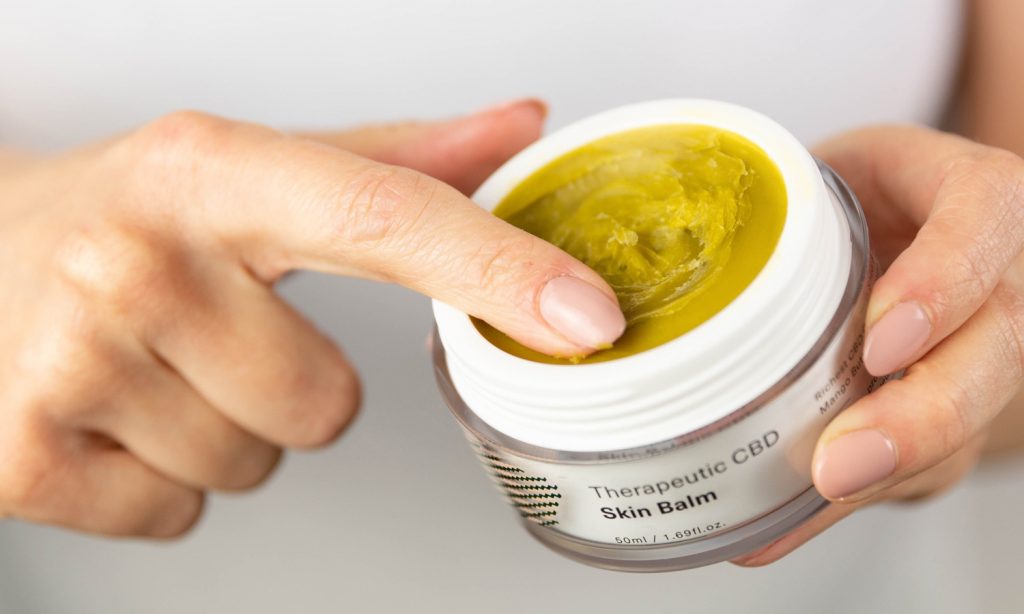A bipartisan medical cannabis bill was introduced to the Wisconsin legislature on Sept. 20 by Sen. Jon Erpenbach, D-Middleton, Rep. Chris Taylor, D-Madison and Sen. Patrick Testin, R-Stevens Point.
According to Testin, the bill would introduce a regulated process on both the patients’ end and production end. The bill requires a recommendation from the doctor as well as a registry system for said patients. On the production end, a licensing system would be put into place for growers, producers and sellers.
For Testin, the medical marijuana issue has had a personal impact on his life as his grandfather, Blair Testin, fought a terminal diagnosis of cancer. Testin said his grandfather made the choice to seek out medical marijuana illegally, and it was the only thing that provided much-needed relief during rounds of chemotherapy as well as helping him to gain back his fleeting appetite.
Testin pointed out that his family’s experience is not unique in any way.
“Conversations I’ve had from individuals from all across the 24 Senate Districts, because my family stories not unique, but stories of people who have used things like CBD oil, who have used other cannabinoid-derived products and eventually get them much needed relief,” Testin said.
Testin said that he is most impacted by stories of veterans who experience vast difficulties once they are home. Testin explained that they are suffering from physical conditions such as chronic pain as well as mental conditions such as PTSD from serving our country.

Testin said that for him, the bill boils down to patient choice. Testin feels that patients should have access to options besides opioids, which are associated with many horror stories among an opioid crisis.
“We’ve got people who have served our country, they’ve gone overseas, they’ve come home with scars that are visible and some that aren’t, and they have to go commit illegal acts and get the medicine that they need,” Testin said.
Testin thought that while recent conversations have started turning the stereotypes surrounding medical cannabis, many physicians remain skeptical. Testin believes that this is due to the fact that there is more research surrounding opioids and other similar drugs.
Testin said that professionals often fall back on the argument that there is not enough research to back medical cannabis.
Testin, however, does not agree.
“For me, we’ve seen the opiate crisis run rampant throughout the state,” Testin said. “And oftentimes people who get addicted to more dangerous drugs, such as heroin or fentanyl, started off on legally prescribed drugs. So for me, taking a look at the big picture, and based on research, I’ve taken a look at other countries and … science [does] tend to point that medical cannabis can serve as a safer alternative.”
Testin said that one of the challenges to get this bill passed is uncertainties within the Republican party. Testin, while being very public about his support, has found that some of his Republican colleagues are not opposed to the idea of medical cannabis, but are weary of putting a robust framework in place to support it.
Taylor felt that the bill is a “no brainer” and expressed frustrations with the Republican party’s hesitations, specifically with the Majority Party leadership.
Taylor, however, did have high praises for Testin.
“He is listening to the people of his district and of the state,” Taylor said.
Testin and Taylor both agreed that the implementation of the bill does face challenges. They cited the list of structures that need to be in place. Taylor did not let those challenges shake her confidence.
Taylor explained that this bill is not the first of its kind. Thirty-three other states — including the District of Columbia — have passed medical marijuana legislation. Taylor pointed out that there are states that have moved beyond that, and have passed recreational legislation as well — including Illinois.

“It’s going to take a little bit to get the whole system up and running,” Taylor said. “But 33 other states and the District of Columbia has done it. So, it’s not like we’re breaking new ground here.”
Testin and Taylor felt that if the bill is passed, Wisconsin would be positively impacted, including finding relief for patients as well as their families. With the legalization of medical marijuana, no patient will need to resort to criminal acts in order to get the medication they need, they said.
Testin and Taylor urged the importance of conversation surrounding the medical marijuana issue in order for everyone to gain perspective of those who would benefit. In regards to those who do not support the legalization of medical marijuana, Testin had a message of respect and understanding.
“I respect your opinion, and I understand why you may not support this position,” Testin said. “But I would encourage you to sit down with the people in your district and hear their stories and see how them using this as a form of medicine has directly benefited them.”
Testin and Taylor believe that constituents communicating with their representatives and senators is also vital for this bill. During the referendum last fall, Wisconsin showed widespread support for medical marijuana.
Taylor stressed that this bill would be difficult to pass, and that it needs the support shown in the referendum to be shown again — especially from younger voters.
“We really need the public to speak loudly to their senators and representatives, that this is important, and that they need to get on board and not block this bill,” Taylor said.



